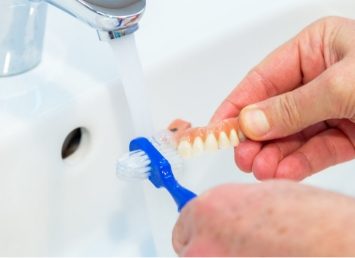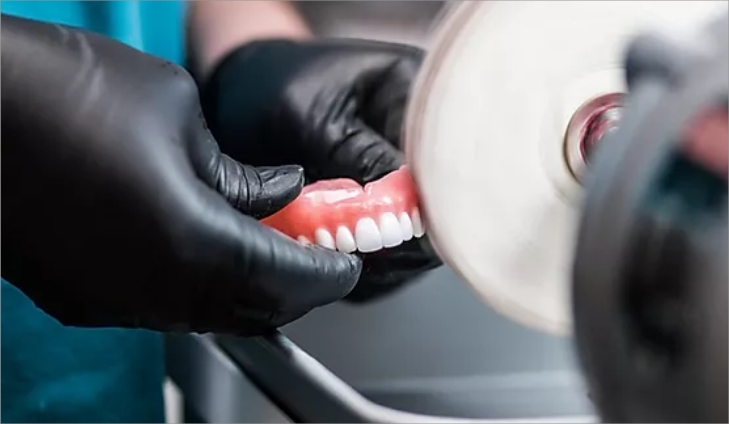Effectiveness of a combination denture cleaning method versus a mechanical method: comparison of denture cleanliness, patient satisfaction, and oral health-related quality of life
Purpose
Effective denture plaque control is necessary for elderly individuals to prevent oral and systemic diseases. However, limited comparative studies of denture cleaning methods with regards to those investigating patient satisfaction. The present study aimed to evaluate the effectiveness of a mechanical denture cleaning method versus a combination of mechanical and chemical methods in terms of denture cleanliness, patient satisfaction, and oral health-related quality of life (OHRQoL).
Methods
Thirty edentulous participants were allocated to one of two groups: mechanical or combination method. First, the mechanical method group was instructed to brush dentures after each meal for 2 minutes using tap water and a denture brush. Then, soak them in saline solution while sleeping. They instructed the combination method group to brush dentures the same way. However, they soak them in denture cleansers while sleeping. Furthermore, both groups cleaned their dentures according to the respective method for 3 weeks. Lastly, they examined denture cleanliness, patient satisfaction, and OHRQoL.
Results
There were significant differences in adenosine triphosphate bioluminescence(p = 0.00003), staining (p = 0.003), and Candida albicans (C. albicans) abundance in upper complete dentures (p = 0.002) between methods. There were no significant differences in oral mucosa C. albicans abundance, participant satisfaction, ease of cleaning, comfort, esthetics, or Oral Health Impact Profile for edentulous patients(Japanese version) scores between methods.
Conclusions
A combination of mechanical and chemical denture cleaning methods was more effective at cleaning dentures than the mechanical method alone. Even if denture cleaning improves denture hygiene, it may not increase patient satisfaction or OHRQoL.
Article from: ScienceDirect.com
Lorin Berland, DDS



